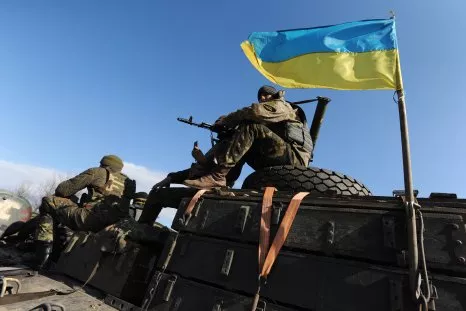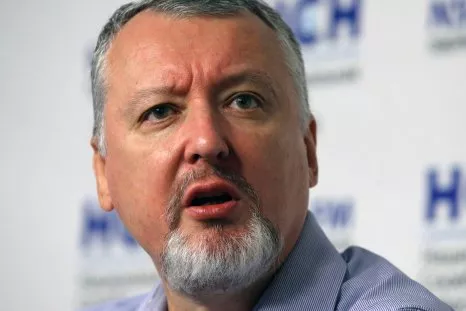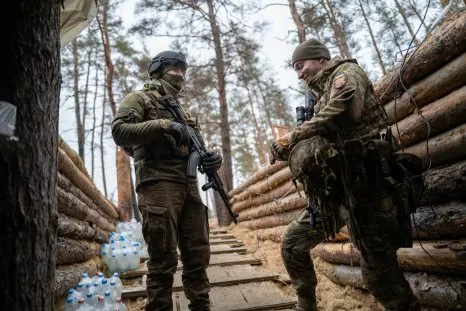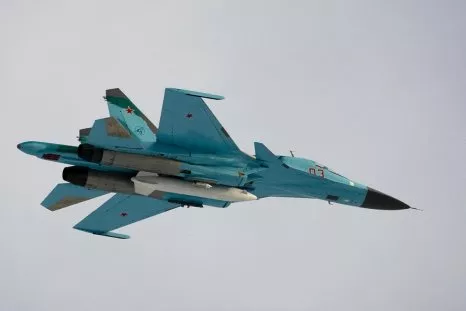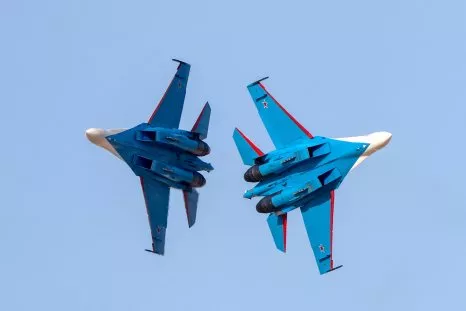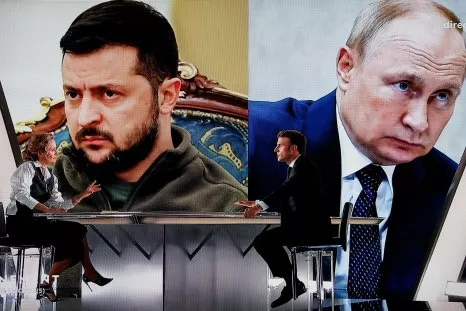War Map Shows Ukraine, Russia Dig In as Winter Freeze Looms
Ukrainian and Russian forces are digging in on different parts of the 600-mile frontline as rainy and freezing weather arrives in the war zone, which is expected to significantly slow major mechanized operations until early 2024.
The Institute for the Study of War's Sunday night bulletin set out the situation along the long contact line, where at several points fierce combat continues as both sides seek to seize key territories ahead of the traditional winter slowdown. Both are in a race against time, as in the combat zones in southern and eastern Ukraine temperatures fall below, or approach, freezing point.
"Ukrainian and Russian forces are continuing combat operations in eastern and southern Ukraine, although the rainy weather will likely continue to slow the pace of combat operations until winter conditions fully set in," the ISW's latest update said.
Newsweek has contacted the Russian and Ukrainian defense ministries by email to request comment.
Ukrainian troops are still pushing their main counteroffensive operation in the southern Zaporizhzhia direction, where Kyiv had planned to break Russian lines and sever the so-called "land bridge" connecting occupied Crimea to western Russia. Hindered by Russian defenses, Ukraine's progress there has been slow, though officials in Kyiv have pointed to success in the erosion of vital Russian supply networks and artillery forces.
Ukrainian units are also on the attack across the Dnieper River—called the Dnipro in Ukrainian—on the southern Kherson front. Kyiv's forces have established several small footholds on the Russian-occupied east bank of the river, which since Kherson's liberation in November 2022 has formed much of the southern front line.
The waterway is a significant barrier, but any sustained Ukrainian success there poses a threat to Russian positions in occupied southern Ukraine and along the narrow approaches to Crimea, with the peninsula standing as one of the key strategic goals of the conflict. Retired Lieutenant General Ben Hodges, the former commander of U.S. Army Europe, has told Newsweek that Crimea is the "decisive terrain" of the war.
Russian forces, meanwhile, are still on the attack in northeastern Luhansk Oblast and around the Donetsk Oblast city of Avdiivka, which since 2014 has been heavily fortified by the Ukrainian military. Russia is attempting to encircle the town—reportedly at high cost—with tactics one senior Ukrainian lawmaker told Newsweek suggest a "repeat [of] the situation with Bakhmut," referring to the grinding and bloody capture of the devastated Donetsk city earlier this year.
On Saturday, the British Defense Ministry suggested that the front may become even more static in the coming months. "As colder winter weather sets in earnest in eastern Ukraine, there are few immediate prospects of major changes in the frontline," the ministry said in its daily update.
"Over the last week, the most intense ground combat has been taking place in three areas: on the Kupiansk axis, in Luhansk Oblast; around Avdiivka in Donetsk Oblast; and on the left bank of the Dnipro river in Kherson Oblast, where Ukrainian forces have established a bridgehead."
"Neither side has achieved substantial progress in any of these areas. Russia continues to suffer particularly heavy casualties around Avdiivka."
Frozen ground—hard enough to support heavy tracked vehicles like tanks—can prove to the benefit of an attacking force. Russia's full-scale invasion began in February 2022, towards the end of the winter freeze. Though ultimately unsuccessful in reaching Kyiv and toppling the government, the late winter offensive seized swathes of Ukraine.
Despite complications, fighting will not stop through winter, ISW predicted. "Freezing weather conditions during the winter will likely prompt the resumption of more active combat operations, and ongoing rainy weather is unlikely to halt Ukrainian or Russian attacks," the think tank wrote.
Last year, Russia launched a largely unsuccessful winter offensive, though the operation set the stage for the late spring capture of Bakhmut. This year, Kyiv expects more action around Avdiivka as fall turns to winter.
"We expect the third wave of the offensive—an attempt to encircle Avdiivka," Ukrainian military spokesperson Oleksandr Shtupun said this weekend. "We are waiting, we are preparing."
Volodymyr Fitio—another Ukrainian military spokesperson—meanwhile, said Kyiv's forces are planning their own winter actions. The military's "main task" through the cold season will be to disrupt Russia's logistics "so that they are hungry, cold, and have no desire to fight," he said. "Thus, the enemy should expect surprises from the sky."
On the home front, Ukraine is expecting another winter of intense Russian missile and drone strikes against vital energy infrastructure.
"We are almost half way through November and must be prepared for the fact that the enemy may increase the number of drone or missile strikes on our infrastructure," President Volodymyr Zelensky said last week.
"Russia is preparing for Ukraine. And here, in Ukraine, all attention should be focused on defense, on responding to terrorists, on everything that Ukraine can do to get through the winter and improve our soldiers' capabilities."
There has been speculation that a winter freeze of large offensive operations might mean new opportunities for peace talks, dormant since the early stages of the war. But neither Ukraine nor Russia shows any sign of compromise. Ukraine is still pursuing full liberation of all territories seized by Moscow, while President Vladimir Putin and his top officials have repeatedly demanded that Kyiv recognize the "new territorial reality" of its occupation of large parts of the south and east of the country.
"It's difficult to conduct offensive operations in the winter," Oleg Ignatov, the Crisis Group think tank's senior Russia analyst, told Newsweek. "In Avdiivka, we see that the Russians also do not have enough resources to attack...their offensive operations are not successful."
But despite the strain on the Kremlin, Ignatov said there is no sign of a détente. "Russia wants negotiations, but Russia wants negotiations because it thinks that it can get—with negotiation—what it wants from this war," he said. "It doesn't mean that Russia is ready to accept any compromise."
"Neither side is ready for negotiations without preconditions," Ignatov added. "I don't think that negotiations are now possible because both sides have very different attitudes."
"Both sides are stuck," Ignatov said. "For the Russians, it's about who blinks first. And they are not going to blink first."
Disclaimer: The copyright of this article belongs to the original author. Reposting this article is solely for the purpose of information dissemination and does not constitute any investment advice. If there is any infringement, please contact us immediately. We will make corrections or deletions as necessary. Thank you.
